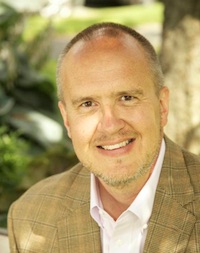 Evolution
Evolution
 Faith & Science
Faith & Science
 Intelligent Design
Intelligent Design
Ideas Have Consequences: A Report from the National Conference on Christian Apologetics

This past weekend, more than 1,500 people attended the National Conference on Christian Apologetics in Charlotte, NC. The theme was “Ideas Have Consequences.” Among the speakers was Discovery Institute Fellow Paul Nelson, who gave three separate presentations to highly engaged and enthusiastic attendees. His first session was a premier screening of Living Waters: Intelligent Design in the Oceans of the Earth, in partnership with Illustra Media. This beautifully filmed and wonderfully narrated documentary shows marvelous examples of design in dolphins, turtles, salmon, and whales.
 The crowd of over a hundred at the screening thoroughly enjoyed the film. In the Q&A session afterward, Dr. Nelson received many positive comments and excellent queries about current evolutionary explanations for the origin of Cetaceans, how to promote Illustra films, and what people can do to encourage discussions on the evidence for design in nature and the shortcomings of materialist philosophy.
The crowd of over a hundred at the screening thoroughly enjoyed the film. In the Q&A session afterward, Dr. Nelson received many positive comments and excellent queries about current evolutionary explanations for the origin of Cetaceans, how to promote Illustra films, and what people can do to encourage discussions on the evidence for design in nature and the shortcomings of materialist philosophy.
After the screening, viewers visited the Discovery Institute information table wanting to know more about Living Waters and where to get it. All who had seen it said how terrific the film is.
Another presentation Nelson gave was entitled “Dr. Seuss Biology: How Evolutionary Theory Hinders Biological Discovery.” This talk addressed the widespread reliance on unsupported theological assumptions, typically unstated — “If I were God, I wouldn’t have done it that way” — in arguments by evolutionary biologists, starting with Darwin himself. The reference in the title of the talk is to Dr. Nelson’s favorite Dr. Seuss book, If I Ran the Zoo.
In the lively Q&A that followed (which ran overtime!) audience members asked about the inconsistency of promoting methodological naturalism while at same time using theology to argue for undirected evolution. Questions also gave Nelson the opportunity to discuss the na�ve view that if biological systems were designed, then the designer “could have done a better job in designing X.” It’s the old argument from supposed sub-optimal design that we’ve dealt with many times here as well as in several of the articles and books from our Fellows.
Dr. Nelson’s final presentation was “The Fall of Darwin’s Tree of Life, and What That Means for 21st Century Biology.” He explained that evolution is not primarily a theory of similarity; rather, it is a theory of transformation.Darwin himself understood this. Indeed in the Origin of Species,Darwin proposed a test for his theory of common descent. He wrote that if it could be shown that some feature in an organism could not be formed by a succession of slight modifications along a natural pathway from some other feature, then “my theory would absolutely break down.”
Nelson then explored the astonishing phenomenon of so-called “ORFan” or “orphan” genes, brought to light in the last 15 years and destined to revolutionize many dimensions of biology. As with the other sessions, the 125 attendees had great questions and lots of enthusiasm.
Besides Paul Nelson, our former staff member Jonathan McLatchie gave a talk entitled “The Case for Intelligent Design” while Cornell’s John Sanford spoke on “The Waiting Time Problem: A Compelling Refutation of Human Evolution.” Philosopher and theologian Gary Habermas gave a very engaging talk entitled “The Fall of Naturalism.” He explained how the evidence of science as well as logic and reason have caused several scholars to reconsider their views on the “nature of nature.” He cited our work at Discovery Institute and called special attention to DI Fellow Michael Denton’s research on the unique, finely tuned balance of properties necessary to support life on earth. (See here for Denton’s article in the journal BIO-Complexity.) Dr. Denton’s ideas were wonderfully shown in our recent film Privileged Species.
Many stopped by our information table, and it was so encouraging to hear people say how much they’ve enjoyed reading Darwin’s Doubt or Signature in the Cell. Many pointed to our videos and would say “I loved that one” or “I have this one, this one, and this one.” To see the impact you are making with your work, demonstrated so vividly, is always a gratifying experience.
Image: � Sergey Nivens / Dollar Photo Club.
